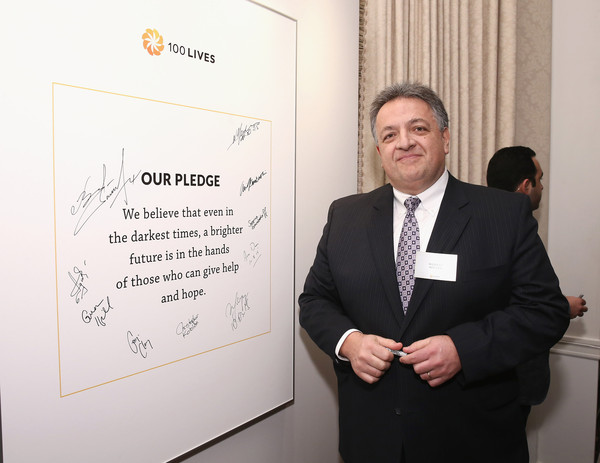Noubar Afeyan Has Had 38 Biotech Wins. Here’s How His Formula Challenges Silicon Valley Dogma

Biotech startups share some similarities to tech startups, but the rules that govern their success seem different. Venture capitalists and experts talk about creating tech ecosystems, which create a sense of linear progressions, where people and companies play prescribed roles. But the right way to think about biotech success seems to be more about culture. Noubar Afeyan, one of the most successful biotech entrepreneurs at work today, is an expert at creating the culture and medium in which successful biotechs develop.
The first insight I got from him during our interview is that product-market fit isn’t the gospel in the biotech world that it is in Silicon Valley. (After a conversation with Clay Christensen a few years ago, I wrote about how building a successful startup isn’t about finding the right key for a lock; it’s about shaping the key and the lock at the same time).
Afeyan is CEO of Flagship Ventures, which has boiled the process of biotech startups down to a science. Afeyan has been involved in 38 successful startups over the years, according to Flagship’s site. Successful means they made it out of the startup phase, to a follow-on round or other growth phase, and five are listed as acquired. One of the companies in his portfolio, Moderna, is producing innovative protein-based therapies and is considered a leading IPO candidate. It had a valuation reported at $3.5 billion in 2015.
Born in Lebanon, Noubar is the grandson of an Armenian refugee who landed in Lebanon after he was saved during the genocide by German officers. Noubar’s father was an entrepreneur, with a small import/export business. But when the civil war in Lebanon came, the family moved to Canada.
Afeyan got a degree in chemical engineering from MIT. There by chance, at a National Science Foundation meeting, he met an electrical engineer in his 50s, who described to him how he had built a company that supplied tools to the new and burgeoning field of electrical engineers. That man? David Packard.
Noodling on the idea of building tools for biomedical engineering, Afeyan went on to found PerSeptive Biosystems, which was acquired. After that, Afeyan turned to his passion, which is startups — not founding individual companies, but creating a process for startups.
“I became interested in figuring out out whether I could start companies for a living, professionally,” he said.

























